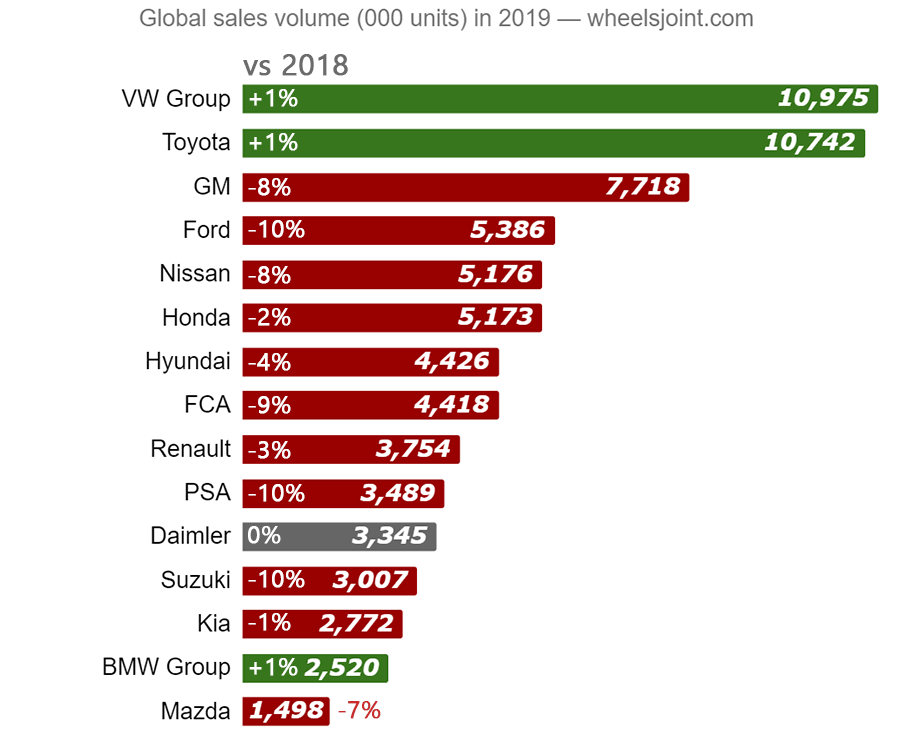The difficulties of the automotive industry began before the crisis brought about by the coronavirus pandemic. Over the past year, the global economy has been affected by several factors that have affected manufacturers’ performance.

Financial information published by 28 of the largest automotive groups indicates that operating profits fell by 11% in 2019, with a loss of $94.4 billion (86.4 billion euros).
The results contrast with the increase in total turnover of 1%, up to $203 billion. Market volatility and pressures on industry have frustrated efforts to protect sales and profits.
The first consequence of a situation in which there is more turnover and less profits is evident on the operating margin, which dropped on average from 5.2% in 2018 to 4.6% last year. Part of the deterioration is explained by the problems in China, the United States and Europe. In the case of the China, which represents 29% of global car sales, the drop was the result of new regulations, economic pressures and a reduction in incentives on electric cars.

In the United States and Europe, sales have stopped rising after years of sharp increases. Furthermore, other expanding markets such as India, Iran, Argentina and Turkey have also faced great adversities. Car sales in these four countries plummeted 21%, amounting to 5.1 million units.
Toyota up in profits
In 2019, the Volkswagen group is the first in the world in terms of turnover (as well as sales), 252.6 billion euros, against Toyota’s 250.8 billion. In both cases, the results grew compared to 2018, thanks to higher sales volumes.
Among the popular manufacturers, Toyota generated the highest value of profits in absolute terms, equal to 21.2 billion euros, or 1,976 euros for each unit sold .
The Ferrari case
Ferrari and Tesla are the ones who have improved the most. Last year the Maranello brand sold 10,131 cars, the first in the world for profitability. Ferrari’s operating margin was 23.2%, or a profit of more than 86 thousand euros for each car sold. Ferrari has managed to mitigate the effects of the global negative moment thanks to the adoption of new technologies, the ability to adapt to changes, and an extraordinary marketing department. Even more noteworthy is that these results are obtained without the help of SUVs, the driving segment of the market.
The Tesla case
Tesla’s situation is different, but equally interesting. The arrival of Model 3 has contributed to global sales growth . However, as it was the least expensive car in the range, turnover did not grow hand in hand. Tesla is still expanding, and is therefore burning cash to finance growth. This explains its loss in 2019 of $862 million, however a clear improvement compared to over $1 billion in 2018.









